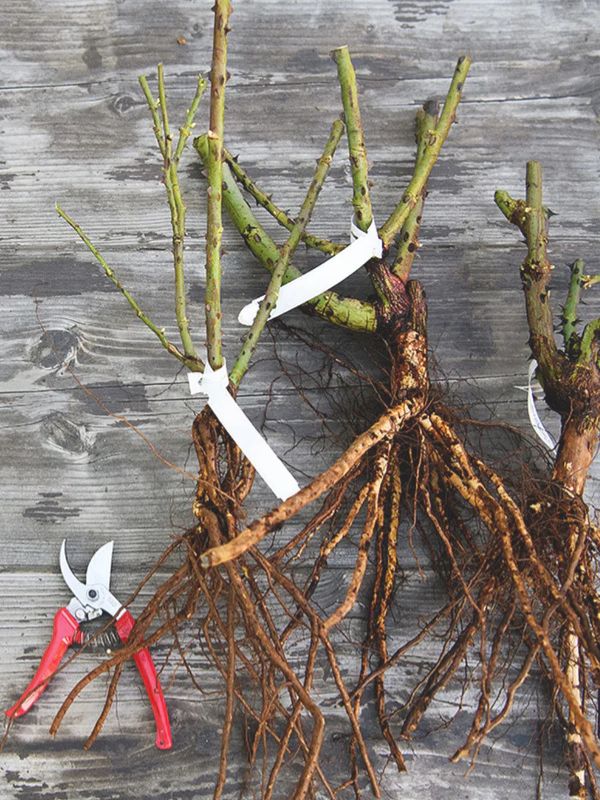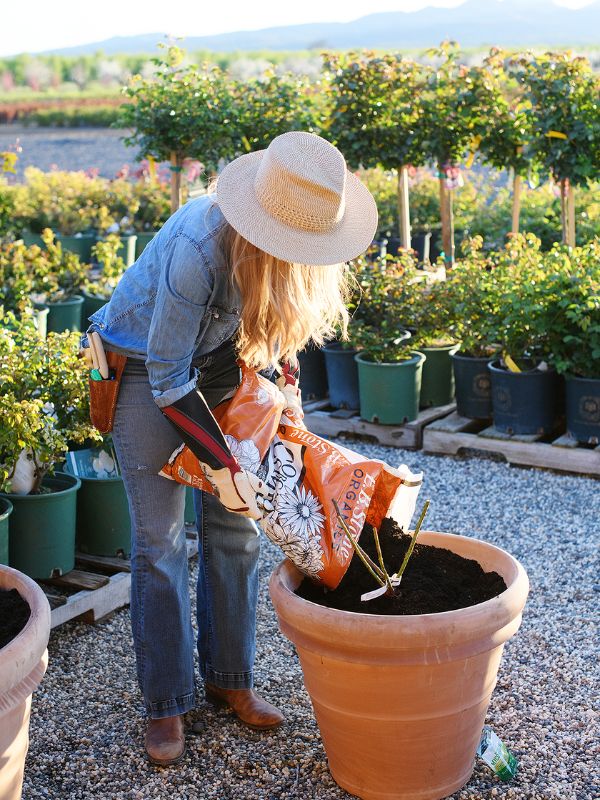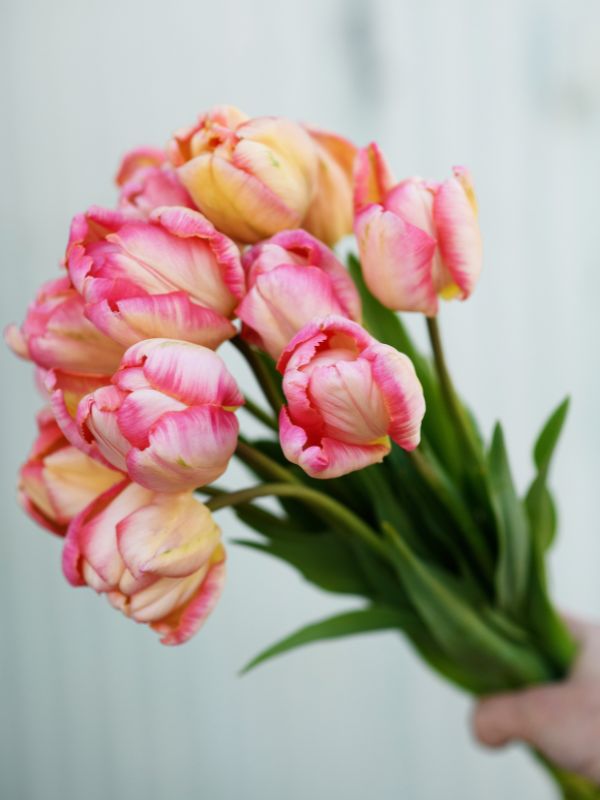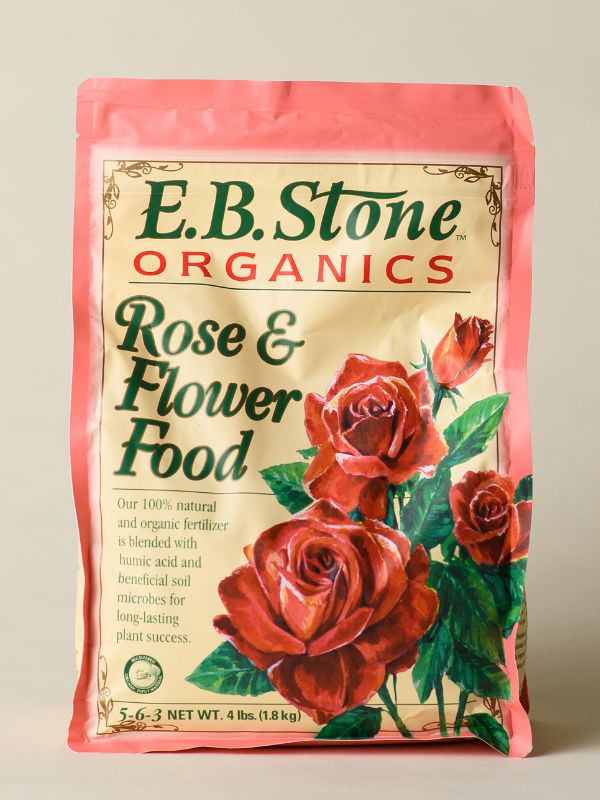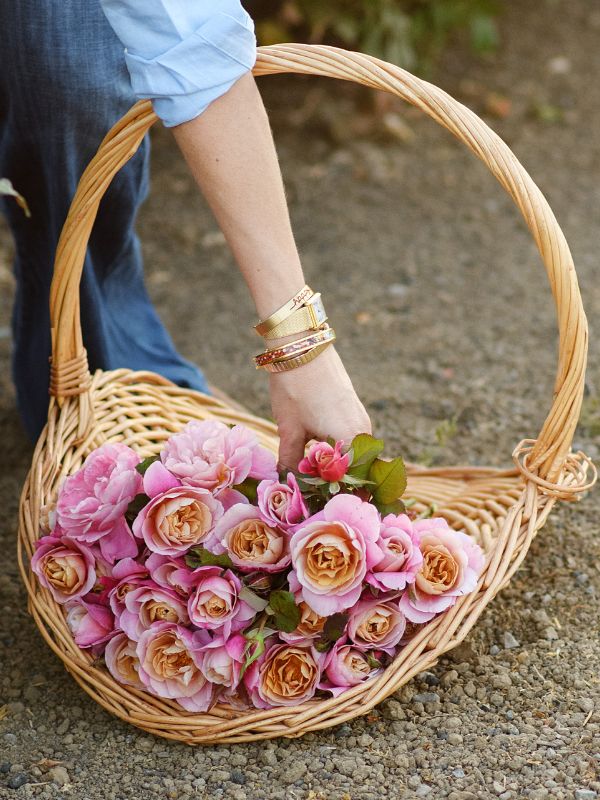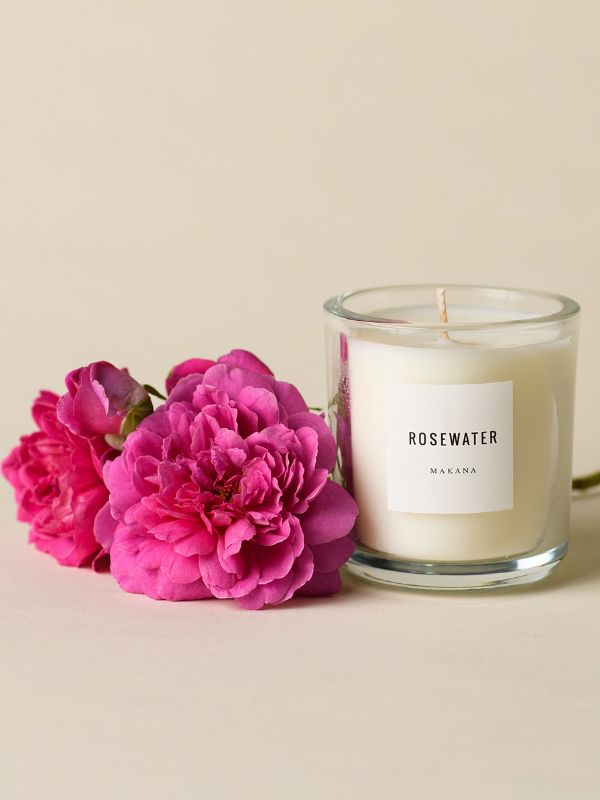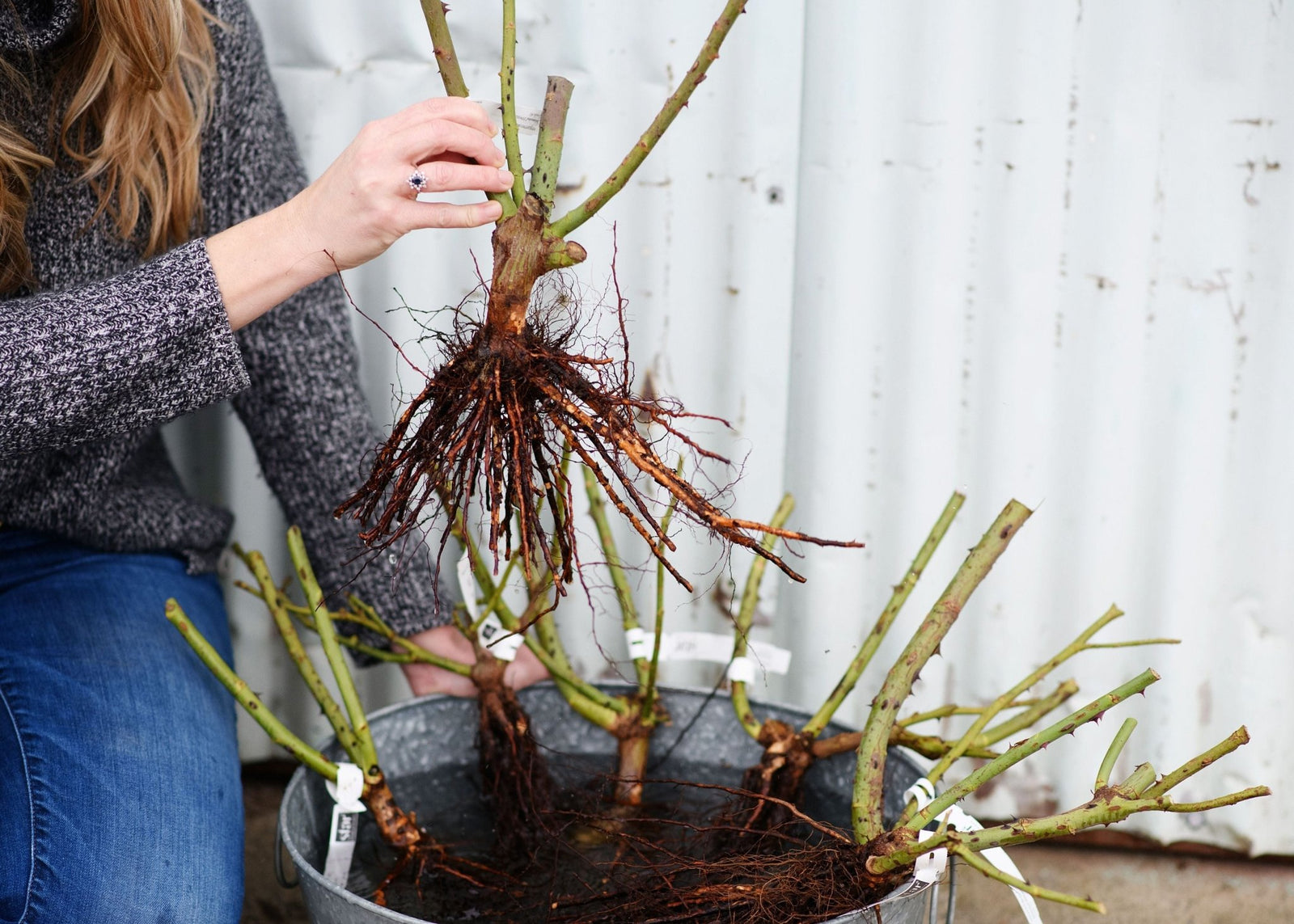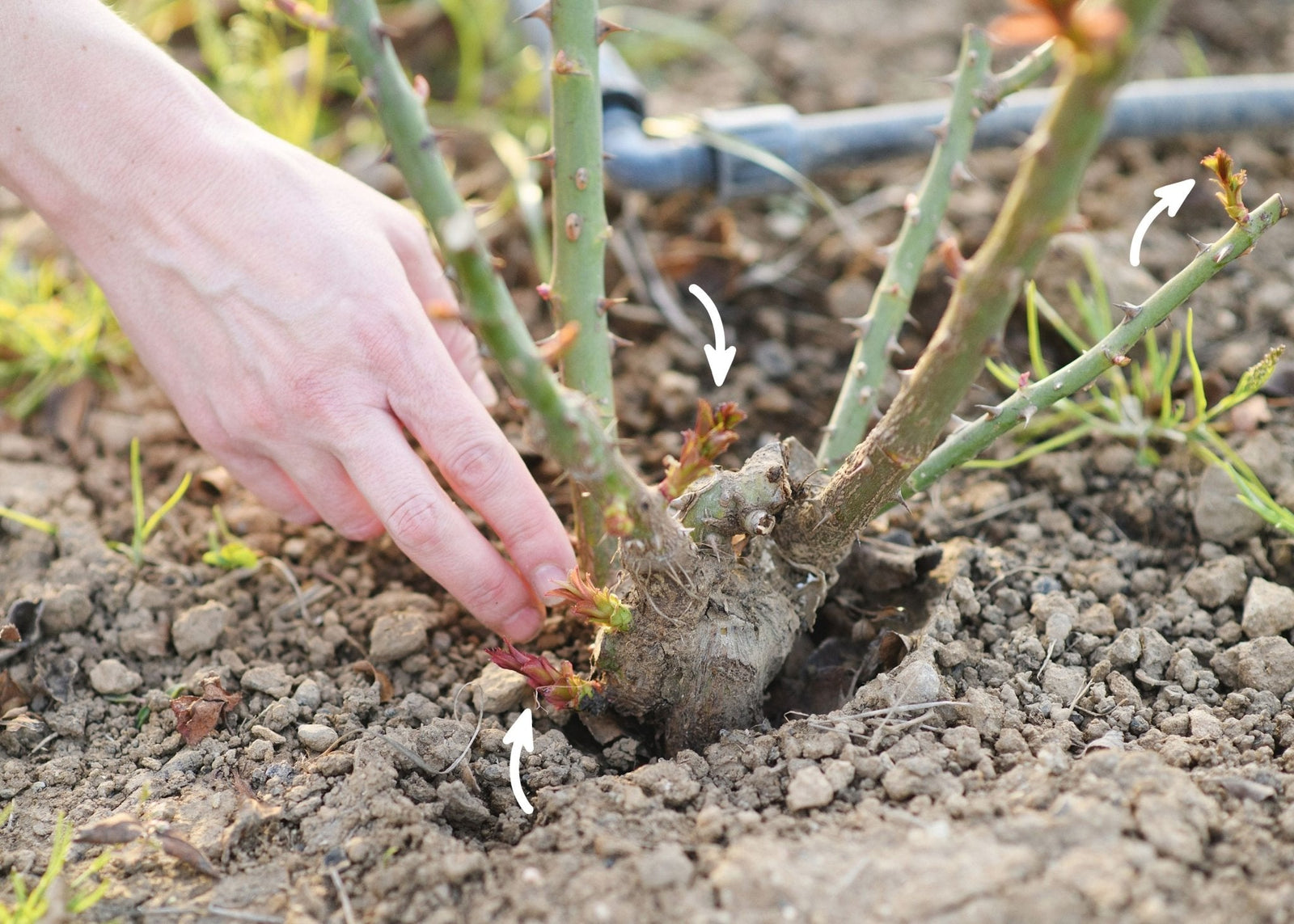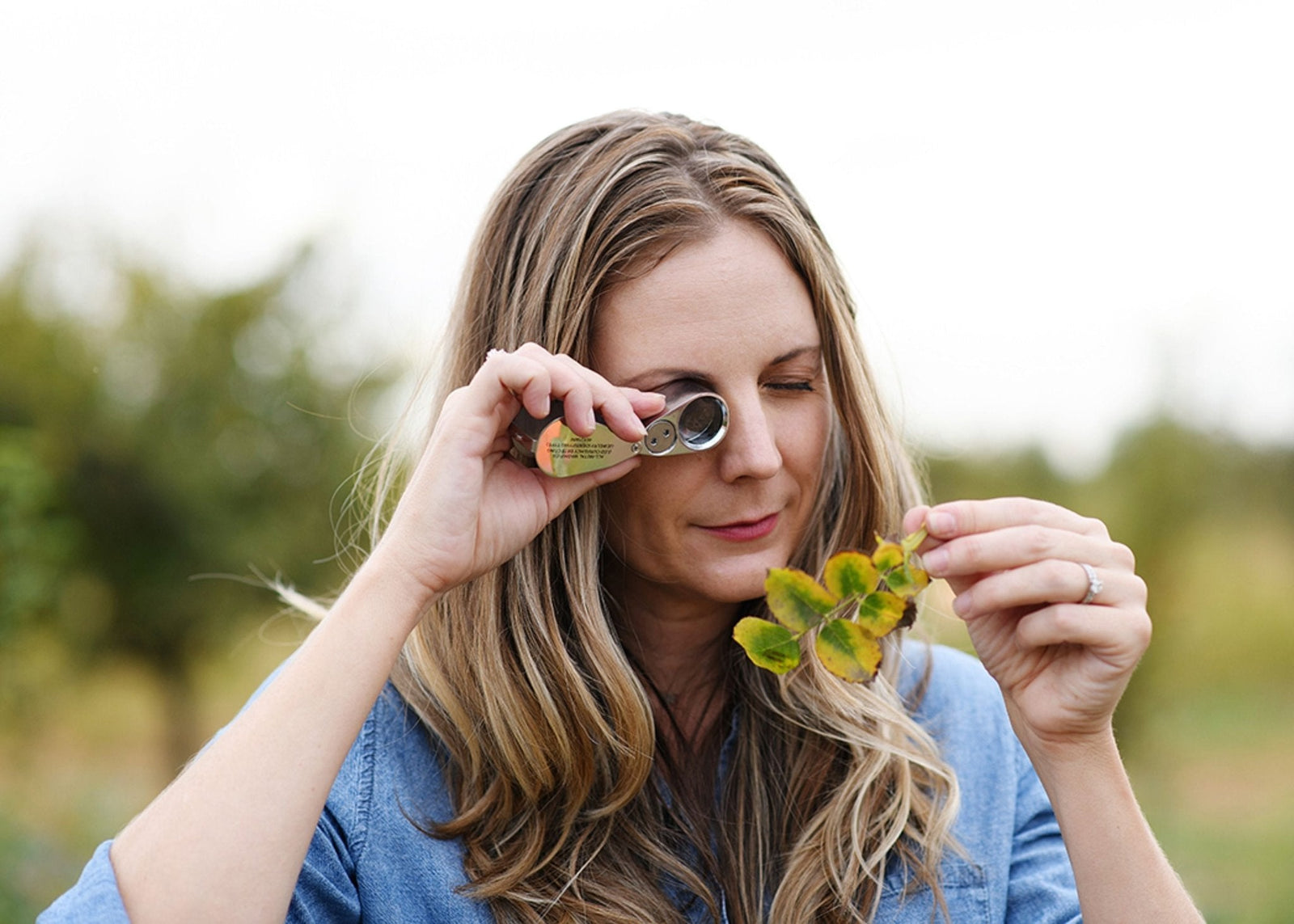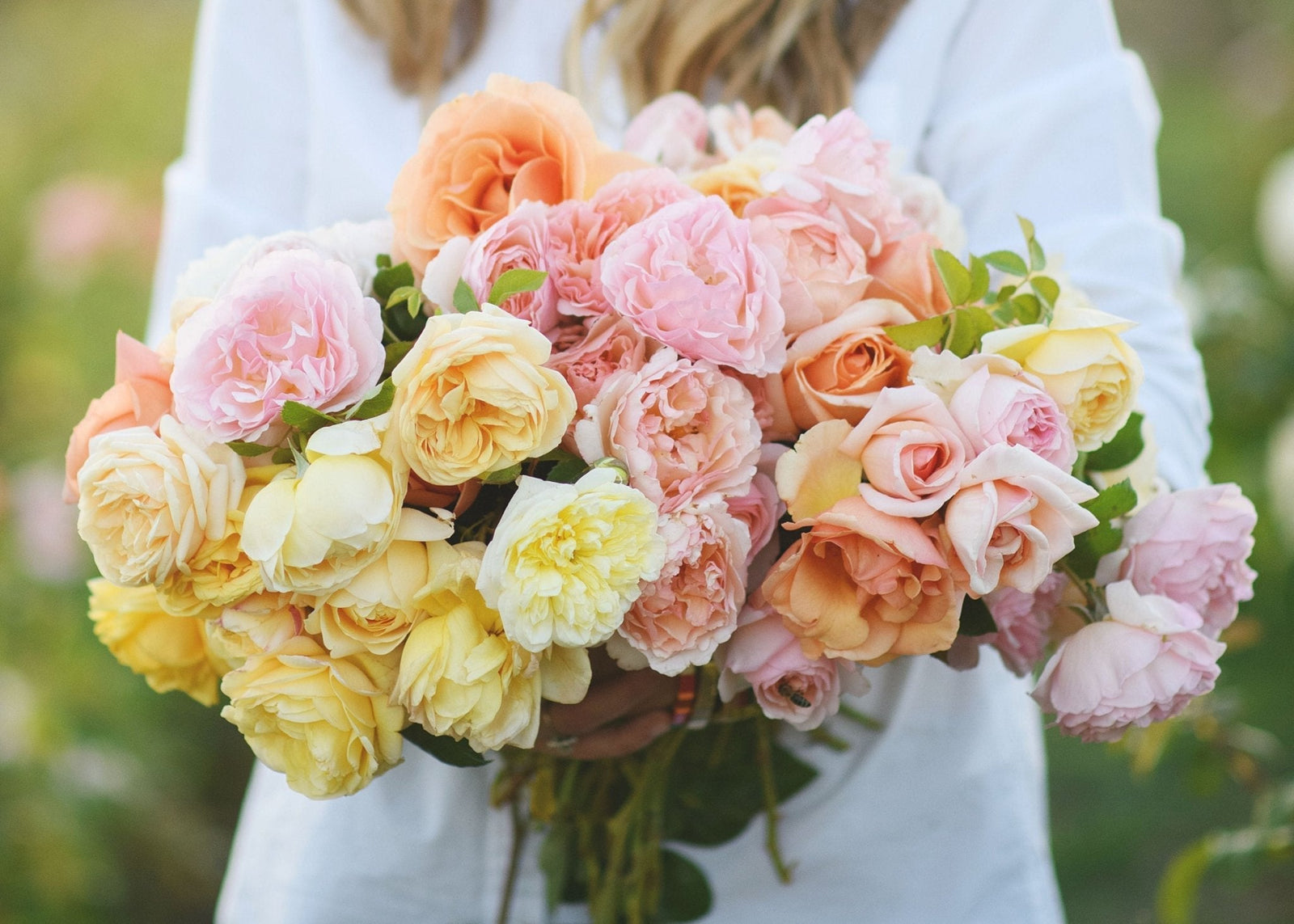A: Hi Rebecca! Deciding between own-root roses and grafted roses depends on a few key factors, such as your climate, the rose variety you're considering and your personal preference. Both options have unique advantages and drawbacks, so let me break it down for you:
Own-Root Roses
These roses are grown from cuttings and develop their own natural root systems. They're generally hardier in colder climates (Zones 3-5), making them an excellent choice for gardeners in regions with harsh winters. Own-root roses are resilient, handling winter dieback well and bouncing back with vigor. Another perk? They don't produce suckers, which can become a nuisance with grafted varieties. However, there is a trade-off. The selection of own-root varieties is more limited, as some roses simply don't perform well without the support of a grafted rootstock. Despite this, own-root roses are ideal for beginners or those seeking long-term durability in challenging colder climates.
Grafted Roses
Grafted roses combine a hardy rootstock—such as Dr. Huey or Multiflora—with a flowering variety as the topstock. This pairing boosts vigor, disease resistance, and encourages faster establishment. Grafted roses often perform better in warm climates or poor soil conditions, like sandy soils. For example, growers in Florida often prefer roses on Fortuniana rootstock due to its exceptional vigor, resistance to root-knot nematodes and adaptability to sandy soils. That said, in colder zones (Zones 3-5), grafted roses need extra winter protection to ensure the flowering variety above the rootstock survives freezing temperatures. Without this extra protection the topstock of the rose will die.
Which Is Better?
There's no one-size-fits-all answer—both own-root and grafted roses can thrive and produce stunning blooms when matched with the right conditions. At my nursery, I carefully decide whether to offer a rose as own-root or grafted based on what works best for each specific variety. Some roses flourish on their own roots, while others struggle unless paired with a robust grafted rootstock. Anyone claiming that ALL roses perform equally well on their own roots is simply selling a bill of goods! Many varieties rely on grafting for the vigor and support they need to thrive and produce an abundance of blooms. That's why I've spent years trialing and testing hundreds of varieties on my farm, ensuring that every rose I offer in my nursery—whether own-root or grafted (or sometimes both)—is the best choice for that particular type.
The good news? In your location (Zone 8a), you can successfully grow both own-root and grafted roses. I recommend planting a mix of both to determine what works best in your garden. Each has its strengths, and by experimenting, you'll get a better sense of which roses will thrive in your unique conditions.



